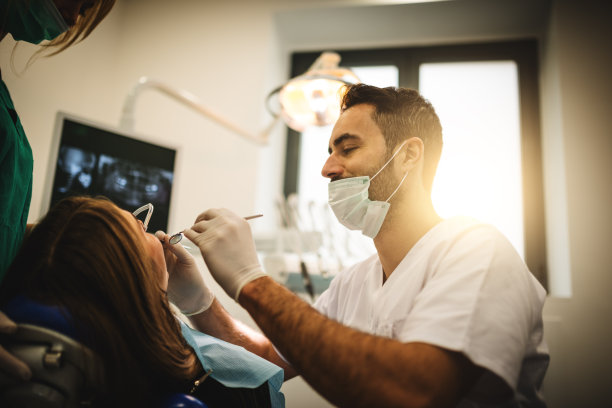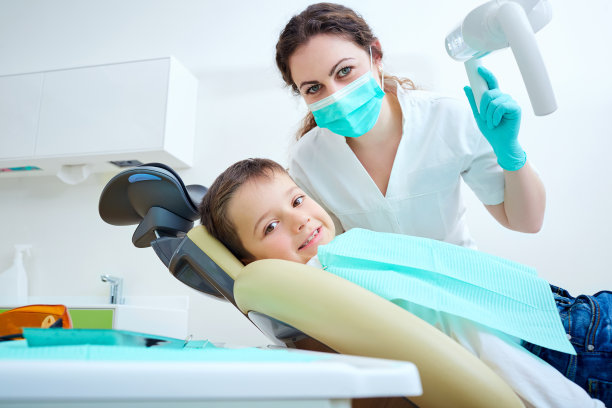Summary: Maintaining optimal oral health after getting a dental filling is crucial for ensuring longevity and preventing further dental issues. This article outlines essential guidelines to follow before and after your dental filling appointment, focusing on preparation, post-filling care, dietary considerations, and regular dental check-ups. Adhering to these steps can significantly boost your recovery and ensure that your dental filling functions effectively. The following sections will detail each aspect, providing practical advice to help you achieve the best possible oral health outcomes.
1. Preparing for Your Dental Filling Appointment

Before undergoing a dental filling procedure, it is vital to prepare adequately to ensure a smooth experience. Start by discussing any concerns with your dentist. Communicating details about your medical history, allergies, and specific fears can help tailor the procedure to your needs and ease anxiety.
Alongside communication, make sure to follow your dentist’s instructions on medications or any pre-appointment guidelines. If prescribed, taking medications such as antibiotics may help prevent possible infections post-treatment, making it essential to adhere to any recommendations provided.
Finally, consider arranging for someone to drive you home afterward. Depending on the type of anesthetic used, you might feel groggy or disoriented post-appointment, making it safer to have a companion to assist you.
2. Caring for Your Teeth After the Filling
Post-filling care is just as crucial as preparation; it can greatly affect the fillings success and your overall oral health. It’s important to avoid eating or drinking anything until the numbness from anesthesia wears off. Consuming food while you are still numb might lead to biting your cheek, tongue, or lips, causing unnecessary pain and injury.
After the initial numbness dissipates, you can gradually resume eating but should start with soft foods. Avoid very hot, cold, or hard foods for the first 24 hours to allow your filling to set properly and minimize the risk of discomfort.
Additionally, pay special attention to oral hygiene in the days following the filling. Continue to brush and floss your teeth gently, ensuring that you keep the filling area clean without applying excessive pressure that may disturb the filling itself.
3. Making Healthy Dietary Choices
Your diet plays a significant role in the recovery process post-filling. Choosing the right foods is critical not just for comfort but for sustaining the health of your fillings and teeth overall. For the first few days, opt for soft foods like yogurt, applesauce, and mashed potatoes that require minimal chewing.
Once you feel comfortable, aim to incorporate foods rich in calcium and phosphorus, such as cheese, leafy greens, and nuts. These nutrients help strengthen your teeth and may even contribute to the longevity of your dental work.
Simultaneously, it is essential to limit sugary snacks and beverages. Sugar can enhance the growth of bacteria that contribute to dental decay. Maintaining a balanced diet and practicing moderation can significantly improve both your oral health and the lifespan of your dental fillings.
4. Importance of Regular Dental Check-Ups
Regular dental visits are essential for maintaining oral health, particularly after receiving a filling. Schedule follow-up appointments as advised by your dentist to ensure the filling is secure and no further treatment is necessary. Regular check-ups help catch any potential issues before they develop into more significant problems.
During these visits, your dentist can provide professional cleanings, helping reduce plaque buildup and maintain the health of your teeth. Professional evaluations also allow your dentist to assess the condition of your filling, making sure it has not degraded or caused any issues.
Finally, consistent dental visits reinforce the importance of oral health hygiene, serving as a reminder to practice optimal care at home. Keeping this habit can prevent additional fillings needed in the future and promote a lifetime of healthy teeth.
Summary:
In conclusion, preparing adequately for your dental filling, practicing post-care diligently, making healthy dietary choices, and committing to regular dental check-ups can significantly influence your optimal oral health maintenance. By adhering to these guidelines, you can ensure that your dental fillings remain effective and keep your smile bright and healthy. Small efforts can lead to lasting benefits in your oral well-being.
This article is compiled by Vickong Dental and the content is for reference only.
Vickong Dental
Vickong Dental is a large medical group established in Hong Kong in 2008 by professors from well-known medical universities in Guangdong and Hong Kong, as well as medical doctors from key national '985' universities (including Master's supervisors and senior professors). The chain of branches brings together expert dentists with PhDs and Master's degrees from Hong Kong and Mainland China, committed to providing high-quality dental treatment.
"Vickong Dental Practices the University Motto of 'Healing and Serving Society,' with a Stable Operation for Sixteen Years. It Has Been honored with Hong Kong Enterprise Leaders's Choice,' and is a Global Trusted Implant Center for the Nobel Implant System. Recommended by Hong Kong Metro Broadcast and Guangdong Television, it Serves Customers from Over Thirty Countries and Regions, Gaining the Trust and Favor of Citizens from the Guangdong-Hong Kong-Macau Greater Bay Area and Surrounding Cities.

Thousands of customers' unanimous praise
The most recognized and highly recommended dental service by customers in the Guangdong-Hong Kong-Macau Greater Bay Area
We Ensure You Receive Detailed Care and Attention Here
Hong Kong standards, Shenzhen prices, Your Trusted English-speaking dentists

Vickong Dental Medical-Grade Instrument Disinfection Process
Vickong Dental Medical-Grade Instrument Disinfection Process

Vickong Dental Chain: A Warm and Comfortable Environment for Treatment






Appointment Hours

Q&A
Why choose Vickong Dental?
Vickong Dental practices the university motto 「Medicine to Benefit Society」, with each branch bringing together highly qualified dentists with doctoral and master’s degrees from Hong Kong and the Mainland, and has maintained seventeen years of steady operation。Recipient of 「2024 Hong Kong Enterprise Leaders Brand」, 「2025 Hong Kong Enterprise Leaders Brand」, a Nobel Biocare Global Trusted Implant Center, and a brand recommended by Metro Radio Hong Kong and Guangdong TV。
To date, we have served customers from more than thirty countries and regions,earning exceptionally high word-of-mouth recognition and trusted recommendations from residents across the Guangdong-Hong Kong-Macao Greater Bay Area and surrounding cities
We have eight major branches in Zhuhai、Shenzhen,and a consultation and service assurance center in Hong Kong,so you can book a free consultation at any time for any questions,which is very reassuring.
If I do not accept the quotation after the CT scan, will I be charged??
No! As long as the actual treatment has not started, you will not be charged any fees.
Will there be any additional charges during the treatment process?
No, there won’t be any additional charges. Before treatment begins, we will clearly explain the treatment plan and its corresponding fees. Only after the patient agrees and signs the consent form will we proceed with the dental service.
Can I pay in Hong Kong dollars?
Yes. Vickong Dental accepts payment in Hong Kong dollars. The amount will be converted based on the exchange rate of the day, and the applicable rate will be clearly communicated to you in advance.
Can I reschedule my appointment at any time?
Yes. Please contact us via **WeChat** or **WhatsApp** as early as possible, providing your original appointment time and details, along with your preferred new date and time slot for rescheduling.













